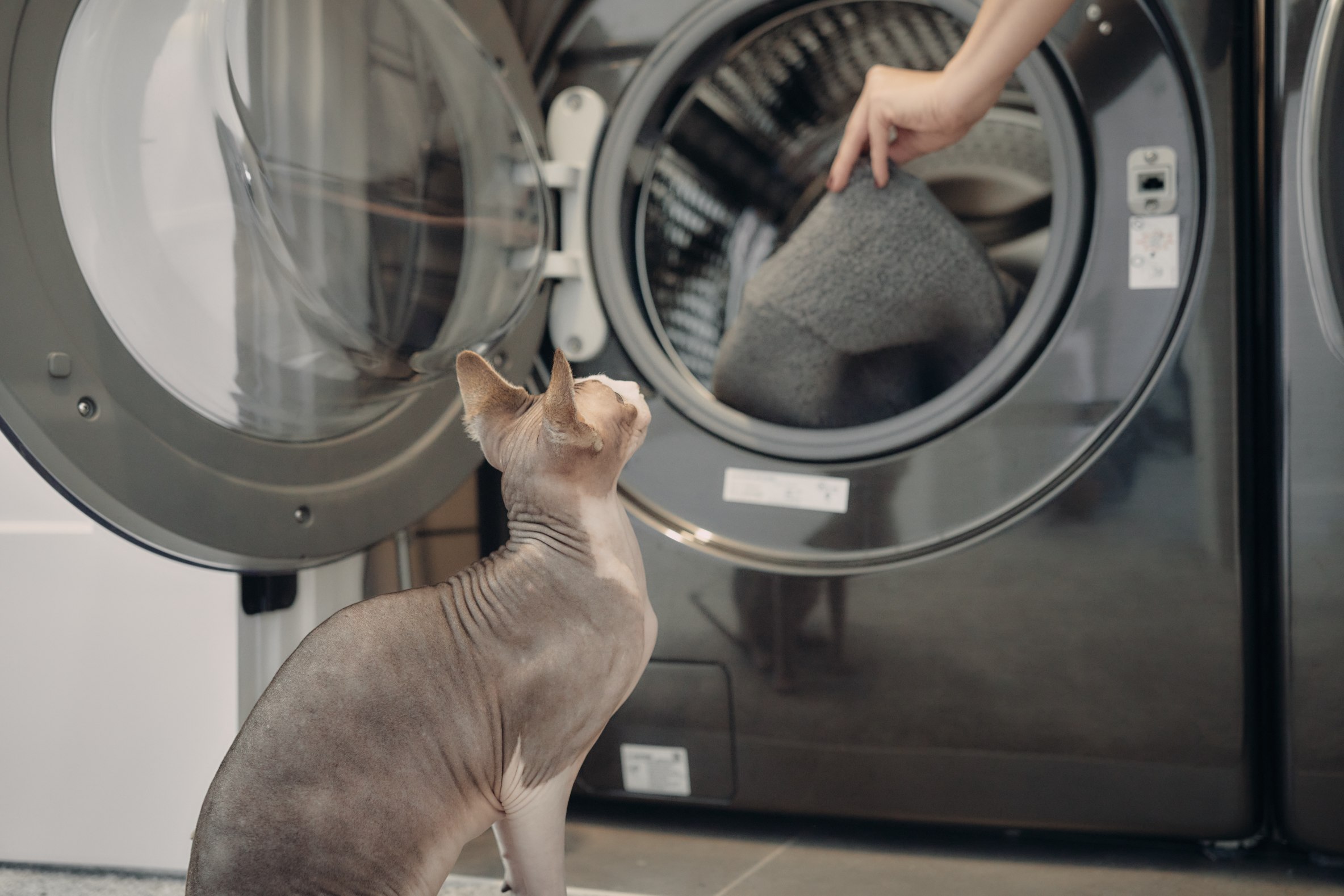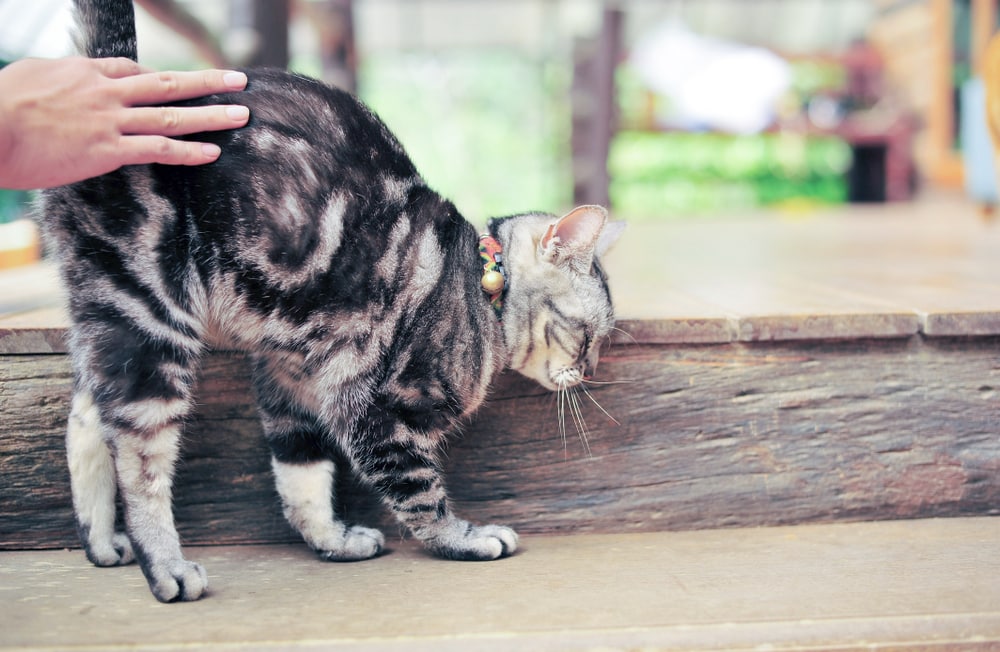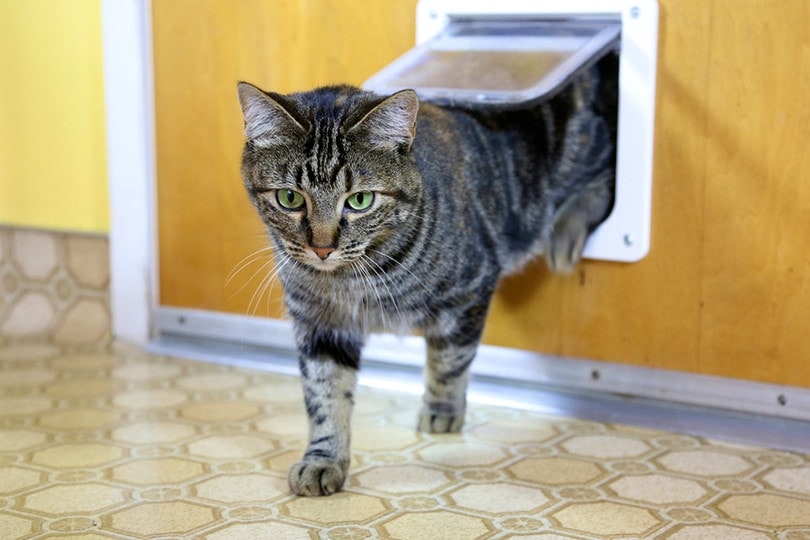Does Alcohol Kill Fleas? Science-Based Safety & Effectiveness Advice
Updated on
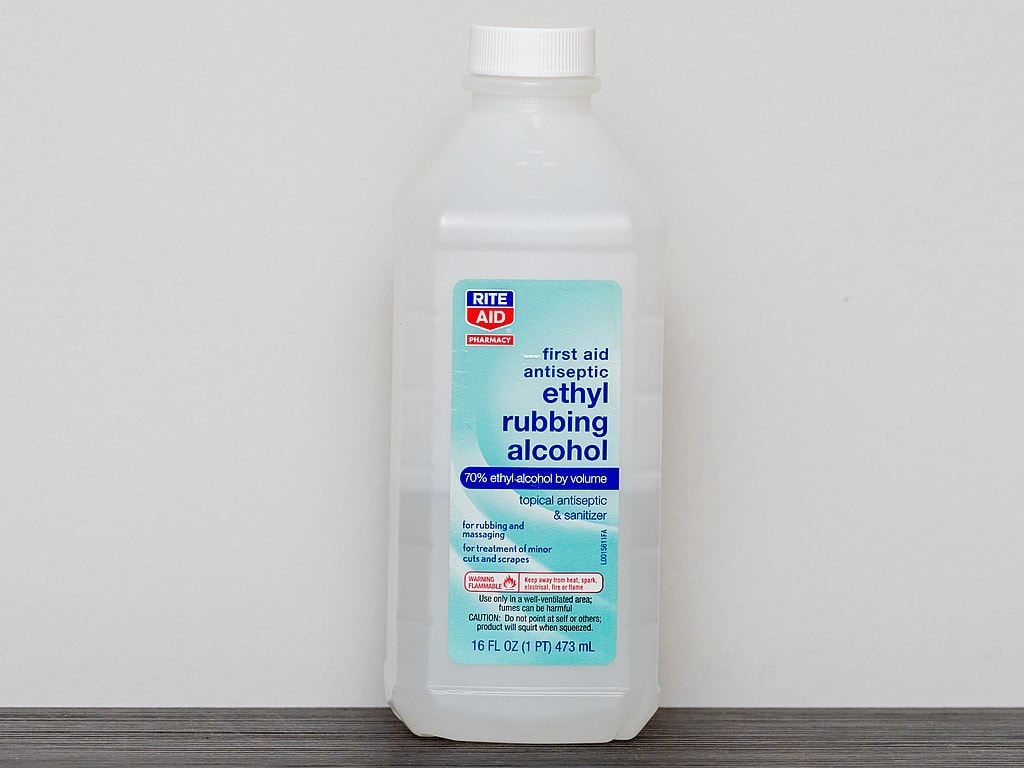
Click to Skip Ahead
Isopropyl alcohol, or rubbing alcohol, is a powerful disinfectant and bug repellent. Technically, rubbing alcohol can kill fleas and ticks, but the cons of using alcohol to kill fleas definitely outweigh the pros.
Instead, we will introduce safer methods for killing off infestations for good.
The 4 Reasons Why Alcohol Isn’t Ideal for Killing Fleas
1. It’s Not Practical
You’d have to pick each flea off your pet, one by one, then drown it in alcohol. Since fleas can multiply in a matter of days, you couldn’t possibly keep up with this laborious task.
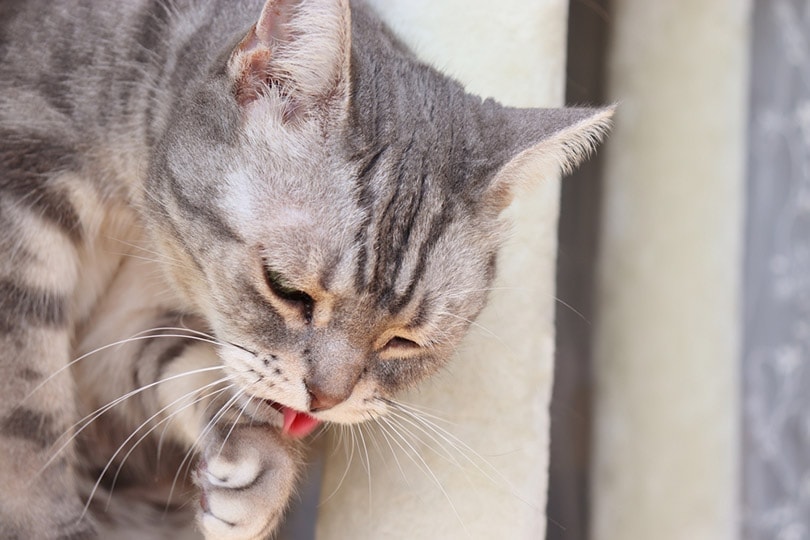
2. It’s Harmful to Pets
Small animals don’t require much alcohol to feel the adverse side effects, so it’s easy to overdo it and cause alcohol poisoning in your pet.
- Vomiting
- Diarrhea
- Difficulty breathing
- Shaking
- Stumbling
- Disorientation
It’s unlikely you’d cause alcohol poisoning in your pet just by dabbing rubbing alcohol on the skin, but it can cause localized skin irritation.
3. The Smell Is Offensive
Alcohol smells terrible, and your pet can smell the offensive odor far better than you can thanks to its powerful sense of smell. For this reason, your pet could be triggered to bathe itself, causing it to lap up some alcohol in the process.
4. Alcohol Is Flammable
This point won’t apply to everyone, but those who have active fireplaces or smoke frequently should be wary of using alcohol on their pets, furnishing, clothing, and other fabrics. Alcohol is flammable and can cause severe damage if you’re not careful.
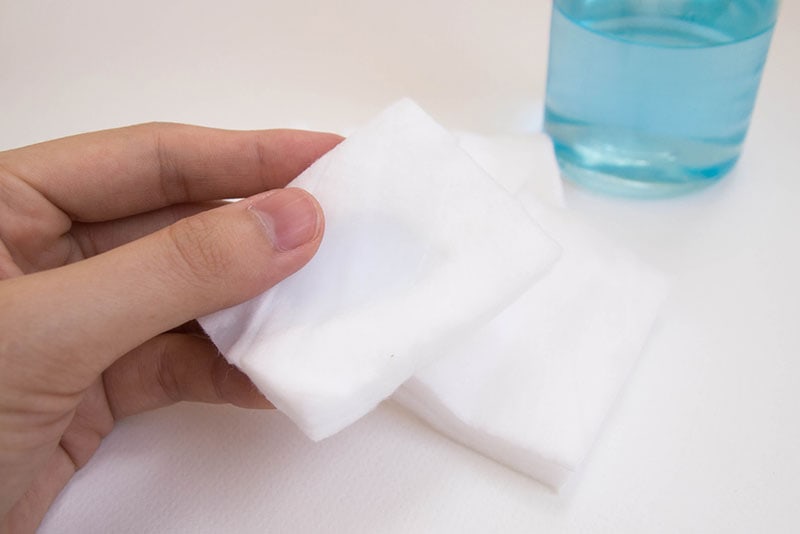
Top 7 Methods of Vanquishing Fleas (Without Alcohol)
So, if you can’t use alcohol, what can you use?
Fleas are pesky but there are plenty of options for effectively eliminating them. You may have to spend more time and money on treatment, depending on your pest problem, but it will be worth it. Here’s how to tackle fleas the right way:
1. Take Your Pet to the Vet
Getting your pet on a flea and tick preventative is always a good idea. If the infestation is bad enough, your vet may need to prescribe stronger forms of medications to kill the fleas on your pet or treat any secondary issues like skin irritation or infection. Once the issue is resolved, you can restart your pet on flea and tick preventative.
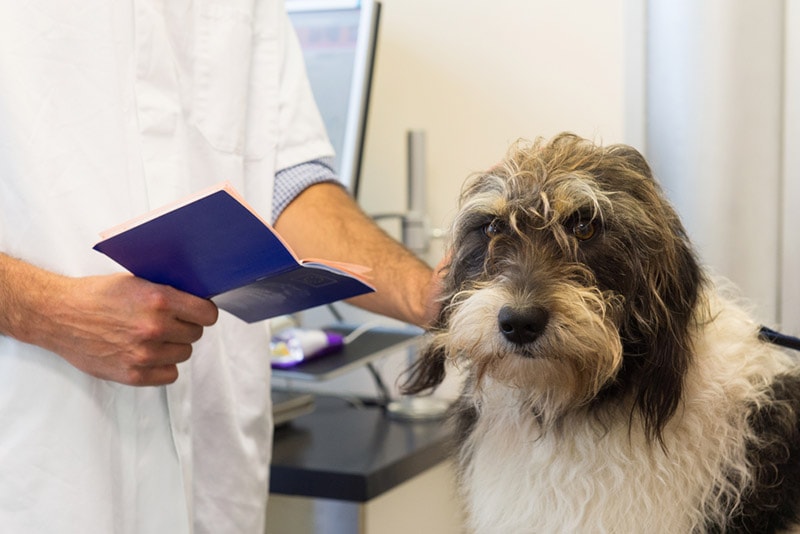
2. Use a Flea and Tick Shampoo
There are several flea and tick shampoos, each with varying degrees of effectiveness. Ideally, you want a shampoo that kills adult fleas and larvae and soothes the skin simultaneously.
3. Use a Fine Comb and Pick Out the Fleas
Use a fine comb and pick out the fleas and larvae. If you’ve ever dealt with lice or fleas, you know how tedious this task is. Still, it works and will prevent fleas from overtaking your house.
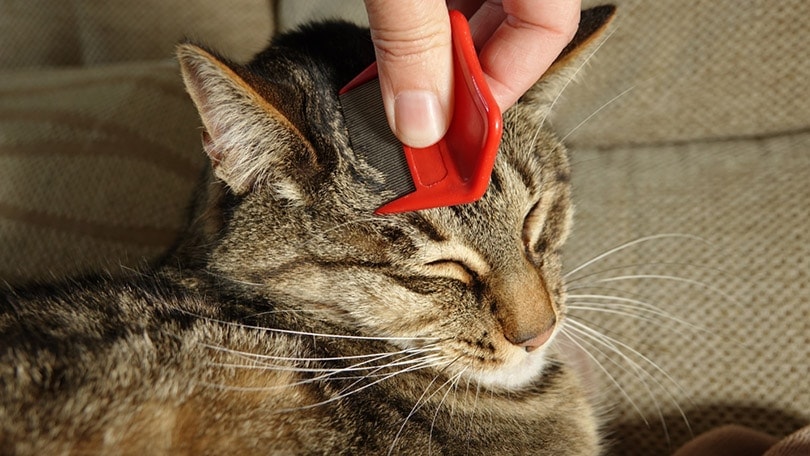
4. Flea-repellent collars
Store-bought flea collars are often ineffective and can cause skin irritation around the neck. There are some safe and effective flea and tick repellent collars available through your vet.
5. Wash and Vacuum Clothes, Linens, and Rugs
Fleas will hide in any fabric as if the fibers are pet fur. Vacuum and wash your clothes in hot water to kill those pesky critters. Don’t forget your pet’s bedding as well!
6. Use a Steamer
If you don’t have a steamer, you should think about investing in one! This simple tool can disinfect, remove wrinkles, ward off allergens, and kill insects in materials that can’t go in the washing machine. Just fill it with water, plug it in, and the machine does the rest.
7. Call in the Pros
You may need to call a professional exterminator if the flea infestation is bad enough. A professional will do a walk-through of your home, locate areas where the fleas are breeding, and organize an action plan.
Calling an exterminator is the most expensive option. Still, it’s worth not having fleas jumping out of the carpet and biting your legs.
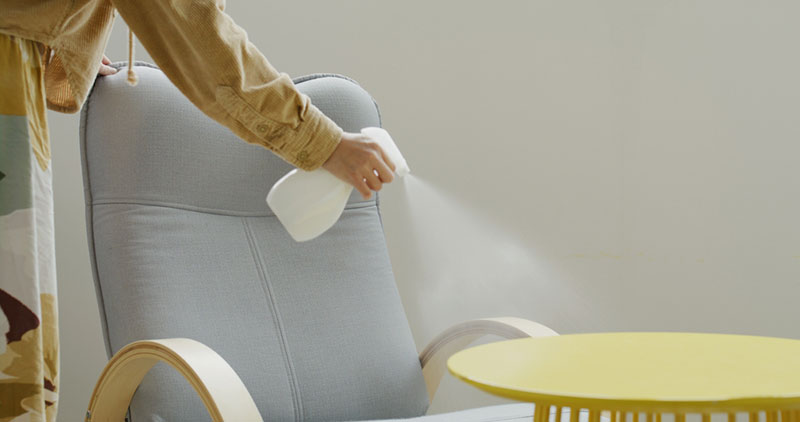
Be Willing to Repeat the Steps
You’ll likely have to repeat these steps until the flea problem is resolved. Flea eggs hatch in 1 to 10 days and spread like wildfire, so don’t feel discouraged if you try everything you can and the fleas aren’t going away.
Natural Remedies to Try
Not keen on using tons of chemicals? No problem. Natural options exist for ridding your house and pets of fleas.
Diatomaceous Earth
Diatomaceous earth is a chemical-free organic powder that contains high amounts of silica. This powder works by dehydrating insects to the point where they die. You can even find food-grade diatomaceous earth that’s safe to use around your pets.
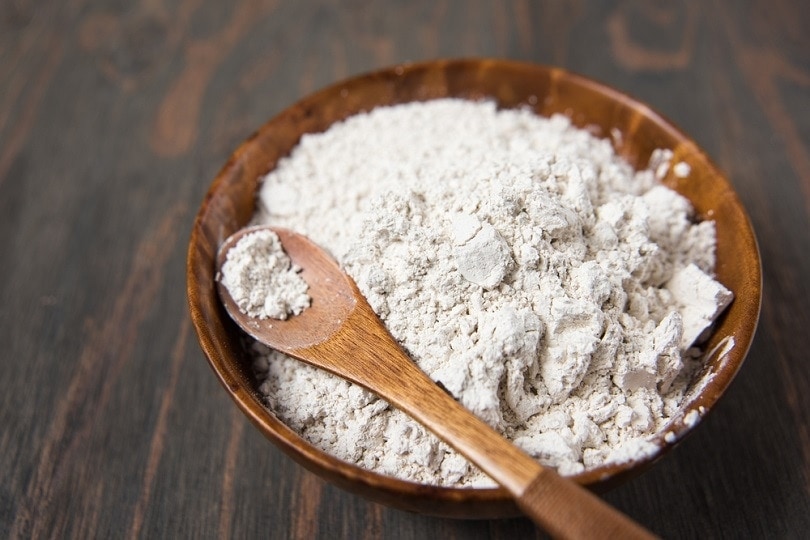
Essential Oils
Cedarwood, lavender, lemongrass, and tea tree oil help keep pests away. Use these oils when cleaning your house or mix them with a carrier oil and spray directly on the area you believe the fleas are breeding.
However, please remember to keep essential oils out of your pet’s reach.
Natural Flea & Tick Shampoo
Natural flea and tick shampoos are deemed pesticide-free. They won’t work as well, but they’ll kick some fleas to the curb.
Conclusion
Having to deal with fleas in the house is a lot to deal with, but you’re not alone. Pet owners everywhere have had to deal with this problem. That’s why so many flea and tick options exist in the first place.
Conquering fleas once and for all is difficult but not impossible. Just don’t use alcohol. Opt for the other options we mentioned above and your home will be flea-free in no time.
Featured Image Credit: Rubbing Alcohol (ajay_suresh, via Wikimedia Commons CC BY 2.0)


